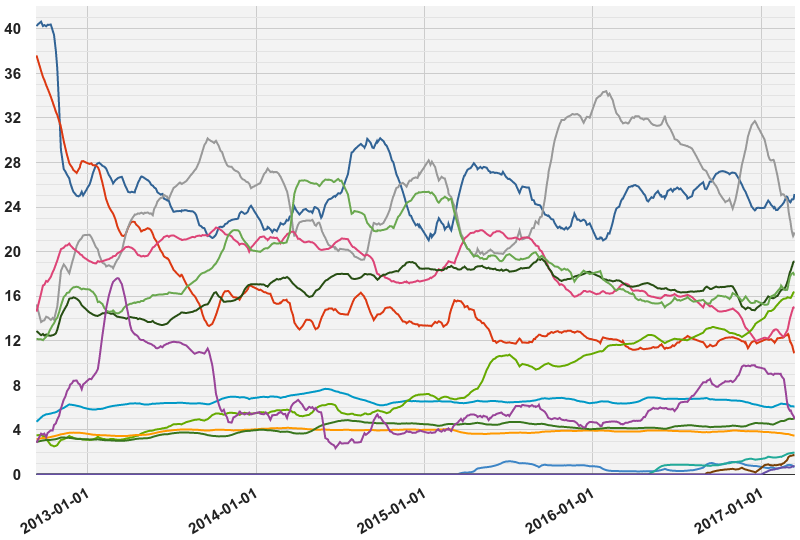The Dutch go to the polls on March 15th to elect a new parliament. While The Netherlands is not one of the big countries in the euro-zone, it is often seen as “the canary in coal mine” or a trendsetter. The outcome of the elections in Holland can reflect and/or influence elections elsewhere, more specifically in France.
The electoral system in the low-lying country is straightforward: a proportional representation in a single constituency. This means that the House of Representatives (Tweede Kamer) is usually fractured and coalitions have to be constructed via a long process of compromises.
The current government is led by Prime Minister Mark Rutte of the People’s Party for Freedom and Democracy (VVD) and he is running for re-election. The party that is expected to come second is the extreme-right Party of Freedom (PVV( led by the flamboyant Geert Wilders.
Wilders and Le Pen
Wilders has an anti-Islam rhetoric and also wants to take the Netherlands out of the euro-zone, aka Nexit. This is in line with France’s Marine Le Pen, which pledged a referendum on a French exit – Frexit.
If Wilders’s party comes out first, it does not imply a government led by the radical candidate. All the major parties (and there are many in the country) have vowed not to cooperate with the PVV.
However, if Wilders comes out as the winner, it could show that populism is on the rise in Europe. It would also provide backwind to Marine Le Pen.
Rotterdam Riots and Opinion polls
According to opinion polls, the race is quite close. After Wilders’s party led for a while, it is recently falling in the polls, with Rutte’s party taking the lead once again.
On the other hand, the latest developments assist the radical-right candidate. Rutte’s government denied a Turkish minister from landing in the Holland, on his way to a rally ahead of Turkey’s constitutional referendum. The move was backed by other European countries and caused a furor in Turkey. It also triggered some riots in the port city of Rotterdam.
Was Rutte influenced by Wilders? Perhaps. But instead of wooing right-wing voters to the center-right candidate, the riots could emphasize the cause of the extreme-right candidate Wilders.
With a close race, this latest development could swing undecided voters on the right. Yet on yet another hand, in previous election cycles, opinion polls overestimated support for Wilders.

VVD in dark blue, PVV in gray – Source: Wikipedia
Dutch elections and the euro
For the euro, this is a straightforward event. If Rutte’s VVD comes on top, given the polls, we could see a stronger euro. It would imply lower chances of a victory by Marine Le Pen in France. She currently leads the first round but is set to be defeated by any candidate in the second round.
And if Wilders comes on top, the euro could suffer. It would imply that Le Pen has a higher chance of winning the elections and that current polls may underestimate her strength. There is no euro without France.
